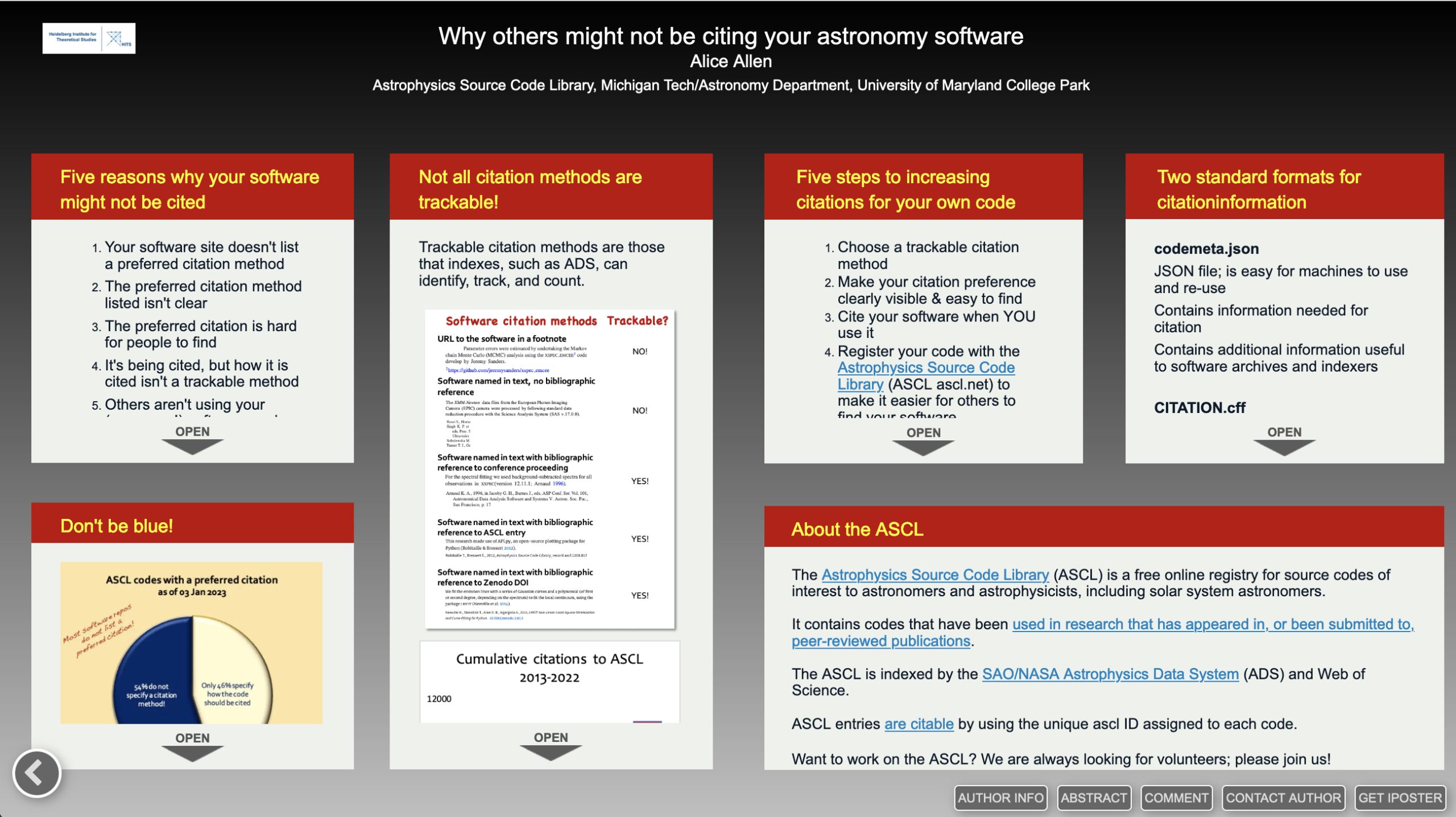All posters at the 241st meeting of the American Astronomical Society were iPosters: displayed on a screen instead of printed on paper or fabric. The ASCL’s iPoster is available for viewing in the iPoster Gallery; the image below is a static screenshot.
Why others might not be citing your astronomy software
Your codes can themselves be cited, and you can choose your preferred citation method! So why aren’t people citing your code? Come find out, and also learn what five steps you can take to improve citation of the software you write.
In the past decade, software citation has accelerated in astrophysics, resulting in the field now having multiple ways to cite computational methods. Adding software metadata files, such as a CITATION.cff or a codemeta.json file, to the root directory of a GitHub repo (or other code storage site) lets others know how they should cite that software. Yet most software authors do not specify how they would like their code to be cited, while others specify a citation method that is not easily tracked (or tracked at all) by most indexers. In 2020, the Astrophysics Source Code Library (ASCL, ascl.net) sent authors of 135 codes software metadata files (CITATION.cff and codemeta.json), tailored to each computational method, and suggested that one of these files be edited as needed and included on their code site. In early 2021, we examined the code sites for these 135 entries and found that only 41% of these sites had citation information in any form available. In mid-2021, GitHub announced the integration of CITATION.cff into its service, making it easier to add this metadata file to one’s repo. Even so, as of January, 2023, 54% of the codes registered in the ASCL do not specify how to cite use of the software. The lack of citation information creates an obstacle for article authors to provide credit to software creators, thus hindering citation of and recognition for computational contributions to research and for the scientists who develop and maintain software.
#AAS241
